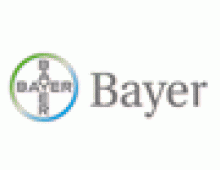
Bayer Announces New Polycarbonate Film With Increased Surface Conductivity
Bayer MaterialScience AG is currently bringing a new polycarbonate film onto the market, namely Makrofol TP 230.
Its strength lies in its increased surface conductivity, which, to a large extent, suppresses electrostatic charges during storage and processing.
Electrostatically charged films can result in significant waste which leads in turn to disproportionately high production costs. This is because not only the film itself is affected, but also the finished part produced from it, which has already undergone printing, forming and often back-injection and coating. Even a slight reduction in waste can result in large cost savings, explains Hans Braun, film expert at Bayer MaterialScience.
Electrostatic charging often causes the film to attract dust, which can become visible particularly in the case of backlit transparent or translucent components such as dials, panels or displays. It can also impair ink application during printing. This phenomenon is particularly noticeable when working with metallic inks. When a producer uses sheetfed stock, the charge can cause several sheets to stick together and to be drawn into the processing machine together.
The increased surface conductivity of Makrofol TP 230 is due to a special formulation which reduces surface resistance from approximately 1015 Ohm a typical value for standard polycarbonate films to between 1010 and 1011 Ohm. It is heat-resistant up to approximately 135 °C, very stiff, impact-resistant and dimensionally stable, elastic over a large temperature range, thermoformable and cold formable. It is available as reel or sheetfed stock and can be transparent or textured in standard thicknesses between 175 and 500 micrometers. Special thicknesses are available on request.
The new film will be on show at this year's FESPA, the world's leading trade fair for screen, digital and industrial printing, which takes place from May 31 to June 4 in Munich. Bayer MaterialScience is taking part in the fair for the first time and will be appearing at Stand 712 in Hall B1.
Information from Bayer MaterialScience on film product ranges and opportunities to contact technical experts is available at www.makrofol.com.
Electrostatically charged films can result in significant waste which leads in turn to disproportionately high production costs. This is because not only the film itself is affected, but also the finished part produced from it, which has already undergone printing, forming and often back-injection and coating. Even a slight reduction in waste can result in large cost savings, explains Hans Braun, film expert at Bayer MaterialScience.
Electrostatic charging often causes the film to attract dust, which can become visible particularly in the case of backlit transparent or translucent components such as dials, panels or displays. It can also impair ink application during printing. This phenomenon is particularly noticeable when working with metallic inks. When a producer uses sheetfed stock, the charge can cause several sheets to stick together and to be drawn into the processing machine together.
The increased surface conductivity of Makrofol TP 230 is due to a special formulation which reduces surface resistance from approximately 1015 Ohm a typical value for standard polycarbonate films to between 1010 and 1011 Ohm. It is heat-resistant up to approximately 135 °C, very stiff, impact-resistant and dimensionally stable, elastic over a large temperature range, thermoformable and cold formable. It is available as reel or sheetfed stock and can be transparent or textured in standard thicknesses between 175 and 500 micrometers. Special thicknesses are available on request.
The new film will be on show at this year's FESPA, the world's leading trade fair for screen, digital and industrial printing, which takes place from May 31 to June 4 in Munich. Bayer MaterialScience is taking part in the fair for the first time and will be appearing at Stand 712 in Hall B1.
Information from Bayer MaterialScience on film product ranges and opportunities to contact technical experts is available at www.makrofol.com.
















